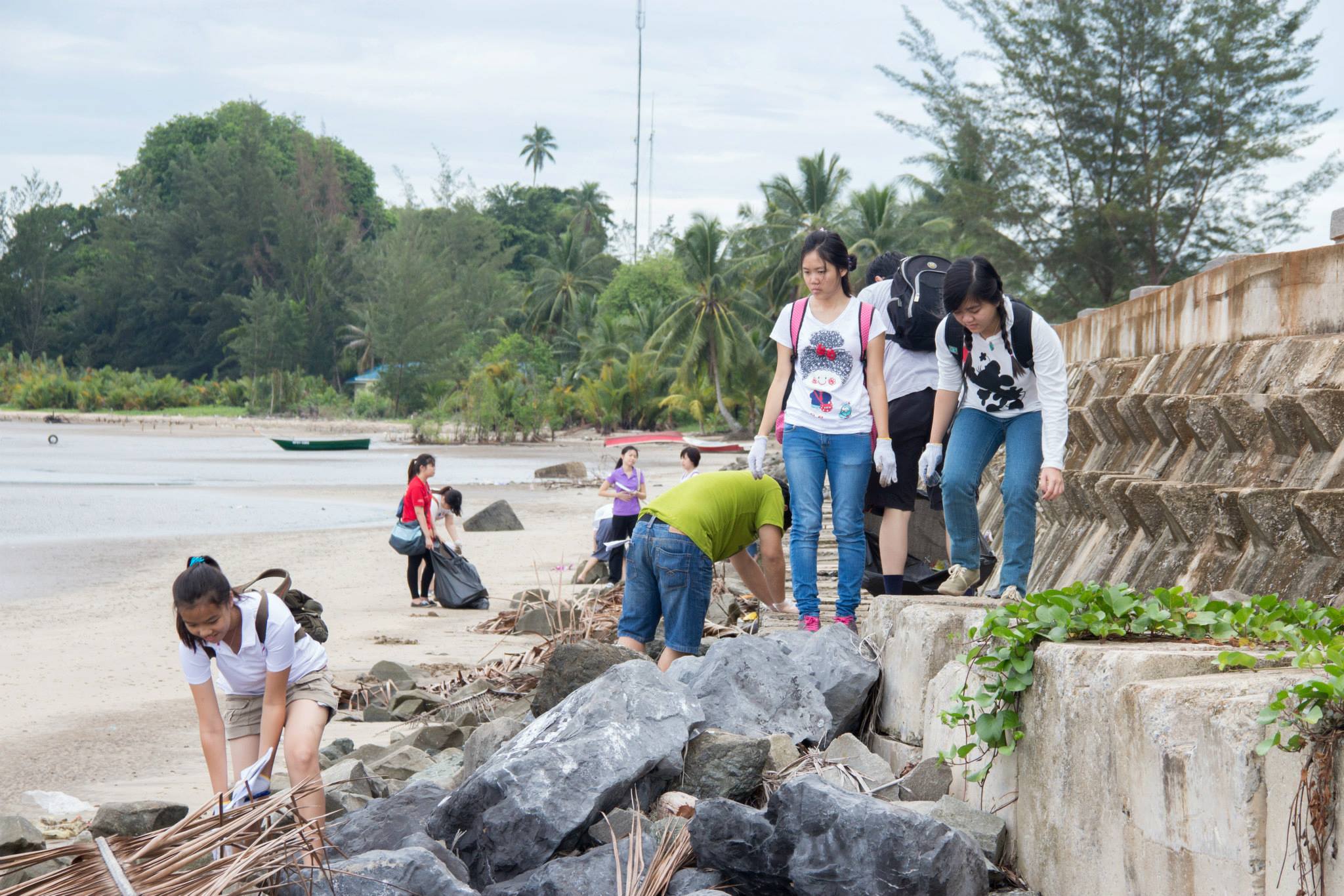KUCHING – Santubong beach, once a popular picnic haven for day-trippers and tourists alike, has seen a decline in visitors in the last few years. But recently, a different kind of visitors descended on the idyllic beach.
Armed with white cotton gloves and large black rubbish bags, they were environmentally-conscious university students with one common goal – to rid the beach of litter and drive home the message that plastic is the greatest enemy of the ecosystem.
The 40-odd Swinburne University of Technology Sarawak Campus students were partakers in the “Bagtastrophe” campaign initiated by biotechnology undergraduate Angelica Fiona Tan to reduce the use of plastic-based products, in particular plastic bags.
Tan is one of Bayer’s Young Environmental Envoy, a program the global German healthcare and agriculture company organises in partnership with the United Nations Environment Program to develop young leaders and create environmental awareness.
The program requires the 12 selected envoys in Malaysia to implement environmental projects which will be judged in September. The two top-performing envoys will earn an all-expense paid trip to Germany in November to learn about trends and perspectives in environmental protection and sustainability.
On the beach, the second-year undergraduate scoured the coastline for trash with her like-minded peers. By the end of the half-day outing, they cleared the beach of litter and collected 18 large bags of rubbish – 1,526 pieces of discarded items.
The bulk of the rubbish gathered was plastic-based: grocery bags, soft drink and water bottles, various food wrappers, polystyrene boxes and countless other forms of recyclable items.
– MORE –
These were then disposed of at rubbish bins in the area.
“By cleaning up the beach, we hope to see a shift in the public’s mind-set on the use of plastic bags. Very simply, plastic bags pollute the environment because they are not biodegradable and take many, many years to break down,” said Tan.
“They also kill wildlife. Sea turtles, for example, mistake them for jellyfish and choke on them.”
Everyone, she said, could and should contribute to the preservation of the ecosystem.
“Simple acts like recycling can make a huge difference. If everyone brings along a reusable bag when they shop, the estimated reduction in the use of plastic bags each day could be in the thousands in Kuching alone.”
Tan said Santubong beach was chosen because of its relevance to tourism.
The “Bagtastrophe” campaign kicked off in early July and included a talk on plastics, an outreach activity for schools, and a “Plastic-Free Day” event at a mall. These were organised with the support of the Swinburne Sarawak Biotechnology Club and the Swinburne Sarawak Green Club.
The campaign is supported by NGO Persatuan go-go-green, and is sponsored by the Swinburne Sarawak Student Council, John’s Pie, Syarikat U-Tech, and CityONE Megamall.


